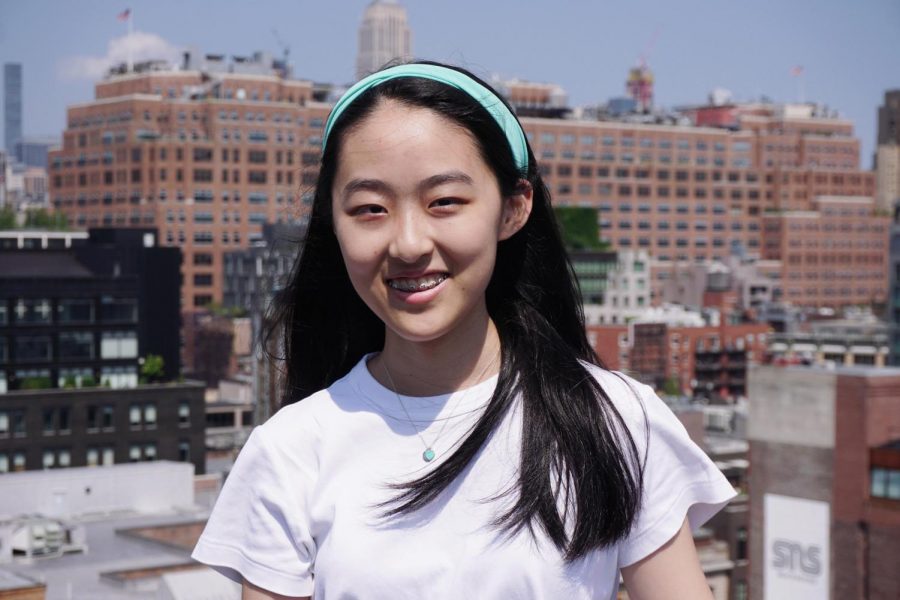Calling All Chinatowns: COVID-19 Wreaks Havoc on Livelihoods in New York City
Businesses located in predominantly Chinese neighborhoods suffer as COVID-19 wreaks havoc on livelihoods in New York City.
Eva Xie ’20 believes that dubbing the novel coronavirus as the ‘Chinese virus’ will not only further tensions between the United States and China, but also between American individuals.
Chinatown, one of New York City’s busiest and densest neighborhoods, whose streets are typically filled with foodies and tourists attracted to the many restaurants and shops there are to offer, has recently become a ghost town void of customers. Since the World Health Organization’s declaration of COVID-19, otherwise known as the coronavirus, as a global health emergency in late January, businesses took a hit as sales experienced a sharp decline.
The novel coronavirus, which emerged late last year from Wuhan, Hubei Province, China, has quickly taken center-stage on an international level as panic erupted throughout cities both within and beyond mainland China’s borders. As the number of coronavirus cases continues to climb, Chinatowns in major cities across the world have suffered as both natives and tourists avoid areas with large Chinese populations, due to the widespread fear that many may have traveled to or from mainland China and have contracted the virus.
Although New York City now has the highest number of reported cases of COVID-19 in the United States, none of the cases have been linked to China-related travel. However, businesses located in predominantly Chinese neighborhoods still suffer as many people remain hesitant in visiting or ordering from the once crowded restaurants and shops. This is especially true of small and local businesses, whose livelihoods stem mainly from the customers who roam the area.
Those who’ve noticed this steeply growing contrast the most were the Bronx Science students who currently live in Chinatown. “Restaurants have definitely appeared a lot emptier [in] the past few weeks,” said Daniel Lin ’20, who lives in downtown Manhattan. “Businesses and places that used to be super crowded are now vacant.”
Students have also noticed an increase in anti-Chinese sentiment in both their neighborhoods and the media, which they observed has played a role in the drop in tourists and street goers. “I don’t think that most of the heightened anti-Chinese sentiment even stems from fear or panic. It’s one thing to be mindful and keep one’s distance from potential risks or dangers, but it’s another to harass and target a specific group of people on purpose,” said Jenny Zheng ’20.
A major supposition as to why the coronavirus has so greatly affected Chinese-American areas and populations, in particular, comes from omnipresent xenophobic and radical headlines and generalizations made about Chinese and East Asians in general.
As recently as this March 2020, United States President Donald Trump has continually defended calling the novel coronavirus the ‘Chinese virus.’ “Trump himself is trying to blame everything on China, and now the phrase ‘Chinese virus’ has become an excuse to discriminate,” said Eva Xie ’20.
Because of this persistent wariness that’s generalized towards an entire population, Chinatown is not the only New York City neighborhood suffering the collateral effects of the outbreak. Those who reside and operate in Flushing, Queens– arguably now the ‘world’s largest Chinatown’– are also sharing the brunt of the impact. Flushing is home to approximately 180,000 people, over 70 percent of whom are of Asian backgrounds.
“There are a lot fewer people out on the streets. When the virus first broke out, the food courts were so empty. My friend who works at Spot said business there became a lot slower as the weeks went on,” said Sophia Zhang ’20, who lives nearby some of the busiest streets in Flushing. Spot Dessert Bar is a crafty eatery located in Flushing known for its baked goods. Like Zhang, several other students have noticed the decrease in customers at other typically popular Flushing-Chinatown locations like Spot.
“Both Chinese and non-Chinese people alike have been affected by this global health issue. I don’t think it’s fair to discriminate against Chinese people or right to discriminate at all. Businesses and people’s way of living are going down the drain because of mass misinformation and preconceptions,” said Lin.
Although the number of coronavirus cases in the United States is growing rapidly, it’s critical to remain attentive to media outlets and credible news sources, as well as considerate to those fighting not only the virus but the prejudices that have shadowed it.
“I know that most if not all businesses are suffering right now, but with the growing normalization of anti-Asian sentiment lingering in a lot of countries, I can tell that the lives of Asian-Americans, in particular, will be disproportionately afflicted for a very long time,” said Xie.
Despite the adversity that the future may hold for many as a result of the outbreak, many remain hopeful and considerate towards their fellow Americans. “I don’t know about anyone else, but once quarantine is officially lifted, I’ll choose to continue supporting Asian businesses, and I hope others do too,” said Zheng.
“I don’t know about anyone else, but once quarantine is officially lifted, I’ll choose to continue supporting Asian businesses, and I hope others do too,” said Jenny Zheng ’20.
Pamela Li is a Copy Editor for ‘The Science Survey’ and a Senior Staff Reporter for ‘The Observatory.’ She finds journalistic writing appealing...

